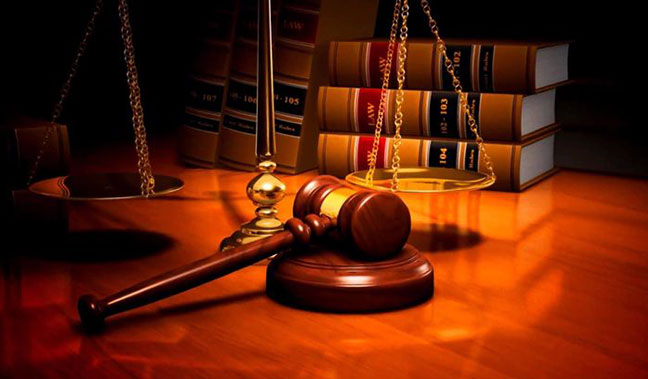Intellectual Property
Intellectual property (IP) is a word which refers to a brand, invention, design or any other type of production that has legal rights over a person or corporation. Nearly all companies have some sort of IP, which might be a commercial asset.
Common IP types include:
Copyright – protects written or published works, including books, music, movies, web material and artworks.
Patents - protecting commercial inventions, such as a new commercial product or method.
Designs - safeguards designs like drawings or models of the computer.
Trademarks - it protects your signs, symbols, logos, phrases or sounds from those of your rivals.
Intellectual Property may or may not be Registered.
You instantly have legal rights to your invention with a non-registered IP. Unregistered IP forms include copyright, unregistered design rights, trademarks and database rights under common law, private information and trade confidences.
One needs to apply with entity such as the Intellectual Property Office for your rights to be acknowledged. Others are free to exploit your work if you do not registered IP forms includes Patents, registered trademarks and registered design rights. Copyright is also available for registration and we are one of the best intellectual property lawyers.
International Issues
Since 1995, India has been a member of the World Trade Organization (WTO). WTO Member States must include in their national legislation some IP protection. This implies that you will discover some similarities between local IP legislation and enforcement processes, and those in place in the UK, when you do business with India.
Reciprocal Agreements and Treaties
In addition, India has signed the following international IP agreements:
Paris Convention - Anybody who is a signatory State may apply, and be awarded the same enforcement rights and status as a native of that country for patent or trademark in any other signatory State.
The Berne Convention - According to which each Member State recognizes, in the same way as its own citizens, copyrights of writers from other Member States.
The Madrid Protocol – A person may submit a single trademark application to his or her national office to protect him or her in several nations.
The Patent Cooperation Treaty - It is a central method for acquiring through a single application the 'bundle' of national patent applications in multiple countries.
India is not a member to the Hague Agreement, which permits design protection in a single filing in several nations.
Intellectual property rights – Indian systems
Copyright
India is a signatory to the Berne Copyright Convention. However, it could be a good idea to register your copyright since it might help to show ownership if the infringers are prosecuted. However, registration is in most circumstances not essential in order to sustain a copyright infringement claim in India. Registration should be done with the Copyright Office in person or through a representative. Copyright policy has been transferred to the Indian Ministry of Trade and Industry since 2016. The Ministry of Industrial Property and Promotion currently administers all IPRs (DIPP). Internet piracy of films, music, games and software, as well as unauthorized copying of physical books, is a concern in India.
Patents
India's 1970 Patent Act, 2003 Patent Rules and the 2016 Patent Amendment Rules laid forth the patent legislation. As in the UK, patents for utility models are not provided for. The regulating authority for patents is the Patent Registrar, which is part of the Ministry of Commerce and Industry, and is under the jurisdiction of the Controller General of Patents, Designs and Trade Marks. Patents shall be valid for 20 years, subject to an annual renewal cost, from the date of application. India's patent system functions according to the 'first-to-file' concept — that is, where two persons apply for a patent on an identical idea, the patent is granted to the first person to apply.
Designs
The design laws are the Design Act 2000 and the Design Rules 2001. The designs shall be valid for up to 10 years and shall be renewed for another five years.
Trade Marks
The Trade Mark Act of 1999 and the Trade Mark Rules of 2002 and 2017 are the Indian trademark laws. Patent Regulatory Authority is the Department for Industrial Policy and Promotion, General Controller of Patents, Designs and Trade Marks. Trade names are also a kind of trade mark in India, with the protection of people who desire to trade under their own surname regardless of existing trade names. Given the widespread practice of 'cybersquatting' - registration by third parties in bad faith of marks registering domain names for certain well-known marks for the purpose of selling to the original rights proprietors – it is advisable that proprietors of rights should register their domain names for trademarks in India as soon as possible.
It takes up to two years to register. A trade mark in India is valid for 10 years and is thereafter renewable for another 10 years forever.
Intellectual Property Rights Registration and Enforcement
You need register them to enjoy most forms of intellectual property (IP) rights in India. For patents, individual registrations must be made in India although you can apply under the provisions of the Patent Cooperation Treaty for rights other than industrial designs which are typically easier and faster. You should register them for trademarks in India, using the domestic trademark system or via Madrid. No registration is necessary for copyright although it is preferable to register copyrights with the copyright authorities. The Paris Convention's 'priority rights' also assist in the local registration of trademarks, designs and patents, it allows rights existing/register in other countries to become effective in India, if submitted within a period of time.
Implementation of intellectual property rights in India
The Indian IP laws, together with the Competition Act, establish processes for civil and criminal proceedings. Patent and design infringements are not subject to criminal prosecution. Over the years, however, rulings against local violators in favor of international corporations have proven the unbiased approach of the judiciary. The threat of criminal procedures against infringers is far harder, involving fines and jail. Mediating or negotiating with an infringement can also be successful as an alternate way of resolving disputes. The Code of Civil Procedure lays forth a structured mediation method.
If you are stuck in intellectual property rights case, then the best intellectual property lawyer in India they will fight for your justice. Being the best intellectual property lawyer in Mumbai for intellectual property rights Cases, we will never compromises with the quality of the legal service. To know more about us, connect with us today at +91-983-319-0063, and get legal advice about your intellectual property rights with best intellectual property advocates






